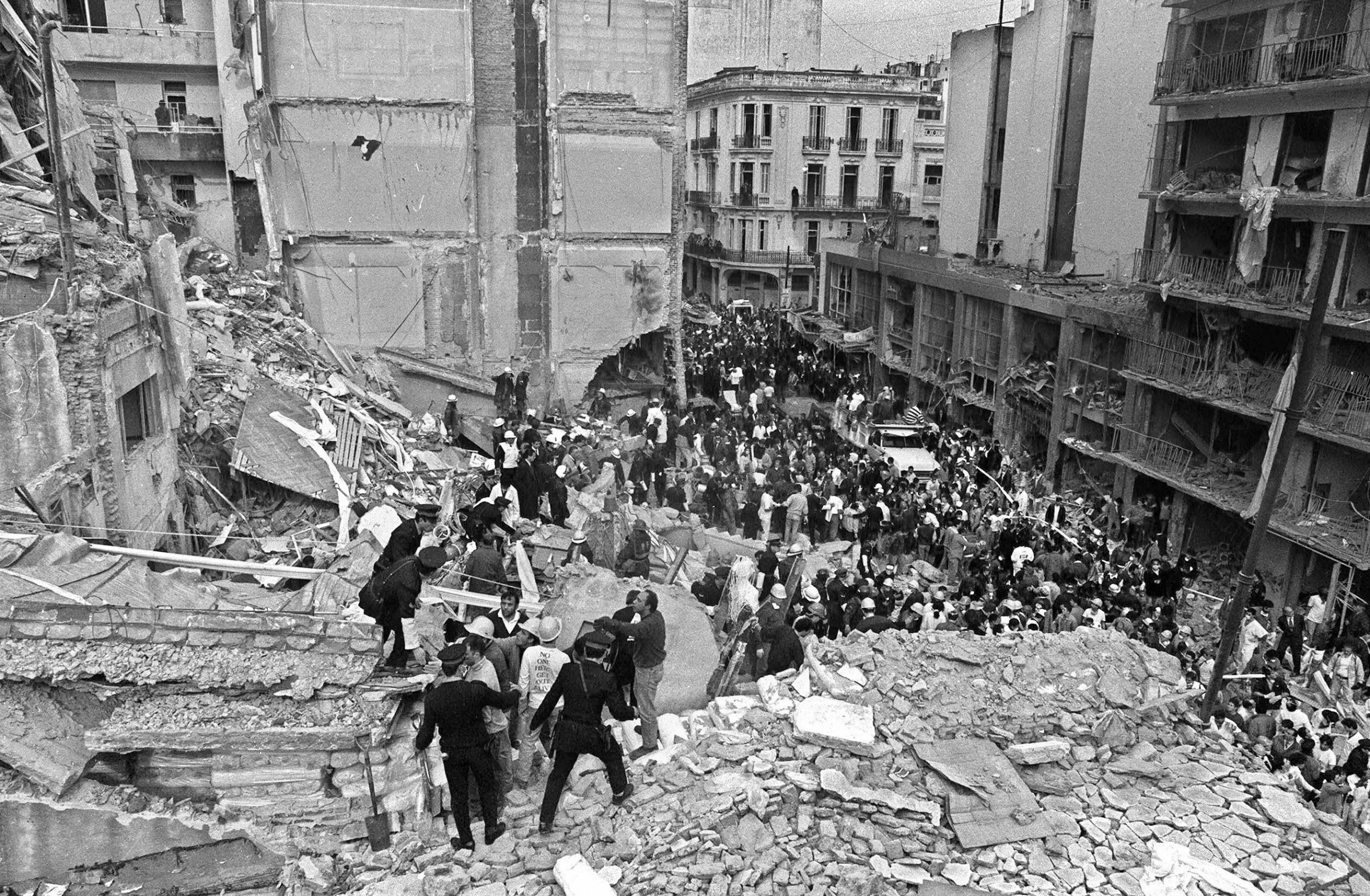
This World Cup, thus far, has lacked the geopolitical frisson that can make the games particularly compelling. The Americans, for example, haven’t played Russia or North Korea (which didn’t qualify for this year’s tournament).
But for many Argentines, Saturday’s game against Iran — which should be a cakewalk for Messi & Co. on the pitch — will be fraught with off-field tension.
On July 18, 1994, terrorists bombed the Argentine-Israeli Mutual Association (AMIA, in Spanish) community center in Buenos Aires, killing 85 people. Nearly 200,000 Jews live in Argentina, giving the country the seventh-highest Jewish population in the world, behind Israel, the U.S., France, Canada, the U.K. and Russia. A probe by Argentine prosecutors concluded that Iran bore responsibility for the attacks, and in 2007 Interpol issued notices calling for the arrest and possible extradition of five Iranian leaders, including Ahmad Vahidi, the country’s former Defense Minister under President Mahmoud Ahmadinejad.
“Watching the game can’t help but bring back painful memories for many of us,” says Claudio Epelman, executive director of the Latin American Jewish Congress, who knew two people who perished in the bombings.
“I love soccer, and I try to put politics outside of this match,” says Ariel Isaak, who as a high school student rushed to the rubble to help in the AMIA rescue effort. (“Nobody knew what to do,” Isaak says, recalling that nightmarish day. “Nobody knew what to say. It was like being in a war, without the soldiers or generals.”) Isaak’s girlfriend — now his wife — lost her best friend in the attacks. “I know the [Iranian] players in the game are not the ones who put in the bomb,” says Isaak, who now owns a private security firm in Buenos Aires. “I just want to see justice.”
In early June, the World Jewish Congress wrote a letter to FIFA head Sepp Blatter asking for a minute of silence before the Argentina-Iran game to recognize the 85 victims. But the organization says it has not received a reply from FIFA, and a FIFA spokesperson did not respond to TIME’s request for comment.
Abbas Milani, director of Iranian Studies at Stanford, notes that Tehran has far bigger distractions than the AMIA case right now (most notably the Islamic State of Iraq and Greater Syria, or ISIS, the Sunni insurgent group now rampaging through Iraq and threatening the stability of the region).
“The government has consistently refused to accept responsibility [for the AMIA attack], saying it’s never been proven in a court of law,” says Milani. “There’s no reason to expect an overt response from the government now. And this is not a government known for showing remorse for past sins.”
Can the bad blood be set aside for the sake of a soccer match? “Soccer is one of those things that tend to eclipse this type of controversy,” says Milani. “But at the same time, I can’t imagine a team from the Islamic Republic of Iran, once it takes the field, being free from the shadow of the government in Tehran. So it works both ways.”
More Must-Reads from TIME
- Donald Trump Is TIME's 2024 Person of the Year
- Why We Chose Trump as Person of the Year
- Is Intermittent Fasting Good or Bad for You?
- The 100 Must-Read Books of 2024
- The 20 Best Christmas TV Episodes
- Column: If Optimism Feels Ridiculous Now, Try Hope
- The Future of Climate Action Is Trade Policy
- Merle Bombardieri Is Helping People Make the Baby Decision
Write to Sean Gregory at sean.gregory@time.com